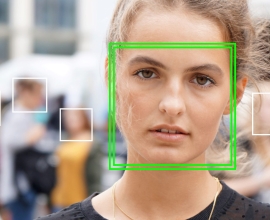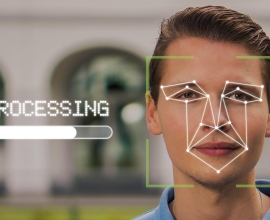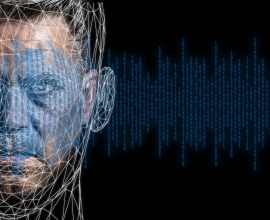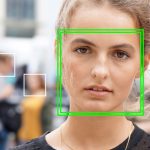In the ever-evolving world of photography, technology continues to shape the industry. One such technological advancement that has gained significant attention in recent years is the use of Face Recognition APIs.
Originally developed for security and surveillance purposes, Face Recognition APIs are now changing the creative domain, particularly among photographers.
In this article, we explore the various ways in which photographers can utilize Facial Recognition APIs to elevate their craft, improve their workflow, and the organization of the visual materials they work with. These photographers include:
- Wedding
- Venue
- Studio
- Concert photographers
Efficient Workflow for Wedding Photographers
One of the primary benefits Face Recognition APIs offer to photographers is the ability to streamline the sorting and organizing of vast amounts of images.
Wedding photographers, dealing with numerous candid shots and group photos, can now save valuable time by automatically tagging and categorizing images based on the individuals present. This is commonly known as face grouping.
This not only makes post-processing more efficient but also allows photographers to quickly locate specific photos, enhancing the overall client experience.
Wedding photographers, in particular, often find themselves overwhelmed with capturing the essence of the big day. Facial Recognition APIs can be integrated into post-processing workflows to identify and tag individuals in group shots, ensuring no important moments are overlooked.
Additionally, these APIs can assist in creating personalized albums for the couple by automatically curating images featuring the bride, groom, and their families and friends.
Enhanced Venue Photography
Venue photographers, tasked with capturing the ambiance and architecture of various spaces, can benefit from Face Recognition APIs in unique ways.
These APIs can be used to recognize and tag key personnel, such as event organizers or venue staff, ensuring proper accreditation in promotional material.
APIs with advanced object recognition might identify specific decor elements, catering services, or entertainment features within the photos.
With the help of facial recognition capabilities, photographers can identify specific guests within the photos, potentially saving time compared to manually searching for specific individuals – something which is valuable to any service provider!
Studio Photography Precision

When it comes to studio photography, where controlled environments are crucial, Face Recognition APIs offer precision and efficiency. Photographers can use these APIs to automatically adjust camera settings based on the recognized subjects, ensuring optimal exposure and focus.
This is particularly useful when working with models or clients who may have specific preferences for their portraits.
Facial Recognition can also assist in maintaining consistent lighting and composition across a series of shots.
Capturing Concert Moments
Concert photographers operate in dynamic and fast-paced environments, where capturing short-lived moments is essential. Face Recognition APIs can assist these photographers in identifying key performers, allowing for quicker selection and editing of images for press releases or social media.
The employment of image analysis can provide insights into crowd emotions, stage lighting colors, or dominant visual elements. This information can be used to create a more engaging narrative around the concert experience.
Integration with Existing Tools
Photographers often have established workflows and tools they are comfortable using. The good news is that many Face Recognition APIs can be seamlessly integrated into existing post-processing software and platforms.
This ensures a smooth transition for photographers who wish to incorporate this technology into their current practices without disrupting their familiar routines. SkyBiometry’s image recognition API offers a dedicated solution that can be seamlessly integrated into your workflow.
You can check out how to best set up and integrate a relevant API solution into your custom project by reading our guide here.
Image Recognition Features for Photographers
Image recognition technology is rapidly evolving, offering photographers a range of helpful features that can save time, improve organization, and even enhance creativity. Here are three key features that can be beneficial for photographers:
- Automatic Tagging
- Content Moderation
- Classification
Automatic Tagging
Saves Time: Imagine searching through thousands of photos without remembering the specific details of each one – painful right. Automatic tagging analyzes your photos, identifying objects, scenes, and even emotions, and assigns relevant tags. This lets you quickly find specific photos, like “portraits taken at the beach at sunset” or “photos of the married couple’s wedding dance”.
Improves Organization: Forget manually adding tags to each photo. Automatic tagging helps you categorize your entire library, making it easier to browse, manage, and share your work.
SEO Benefits: When uploading photos to online platforms, relevant tags can improve search engine optimization (SEO). Photos with accurate tags are more likely to be discovered by potential clients or viewers searching for specific content.
Content Moderation
Ensures Safety: This feature can be especially useful for photographers who shoot events or work with sensitive content. It can automatically flag photos containing inappropriate content, like violence or nudity, helping you maintain a safe and professional online presence.
Saves Time: Manually reviewing every photo for potential content violations can be time-consuming. Content moderation tools can help identify potential issues quickly, allowing you to review and address them efficiently.
Protects Reputation: By proactively addressing any inappropriate content, you can protect your reputation and avoid potential legal or ethical issues. You can also easily filter the outtakes and perfect your shots hassle-free.
Classification

Smart Photo Organization: Image recognition can automatically categorize photos based on various criteria, such as genre (portrait, landscape, etc.), event type (wedding, birthday party, etc.), or even the presence of specific objects (animals, buildings, etc.).
Identify Similar Photos: By analyzing visual similarities, image recognition can help photographers identify duplicate or similar photos within their collection. This allows them to easily remove unnecessary copies and keep their library well-organized, saving storage space and improving workflow efficiency.
Automatic classification helps photographers organize their vast collections efficiently and effortlessly. This allows you to easily search and filter your library based on these categories, making it even faster to find the photos you need.
Image labelling goes hand-in-hand with classification, giving bigger control over image organization and searchability. Photographers can:
- Add custom tags – Supplement automatic tagging with personalized keywords relevant to their own workflow or project needs. A good image labelling tool is SentiSight.AI, which helps you mark your dataset to enhance the organization of your photo galleries.
- Create specific categories – Define custom categories beyond the pre-defined ones offered by the software, allowing for a more tailored organization system.
- Annotate specific objects – Highlight and label specific objects or regions within an image for more detailed information retrieval. This can be particularly useful for editorial or documentary photography where specific details might hold significance.
In conclusion, Face Recognition APIs can serve as a useful tool for photographers across various niches. By automating the process of tagging and organizing images, enhancing workflow efficiency, and providing opportunities for personalization, these APIs contribute to a more streamlined and sophisticated photography experience.
As technology continues to evolve, the collaboration between human creativity and artificial intelligence promises to reshape the domain of photography, opening up new possibilities for innovation and artistic expression… something we here at SkyBiometry are excited to be a part of.









